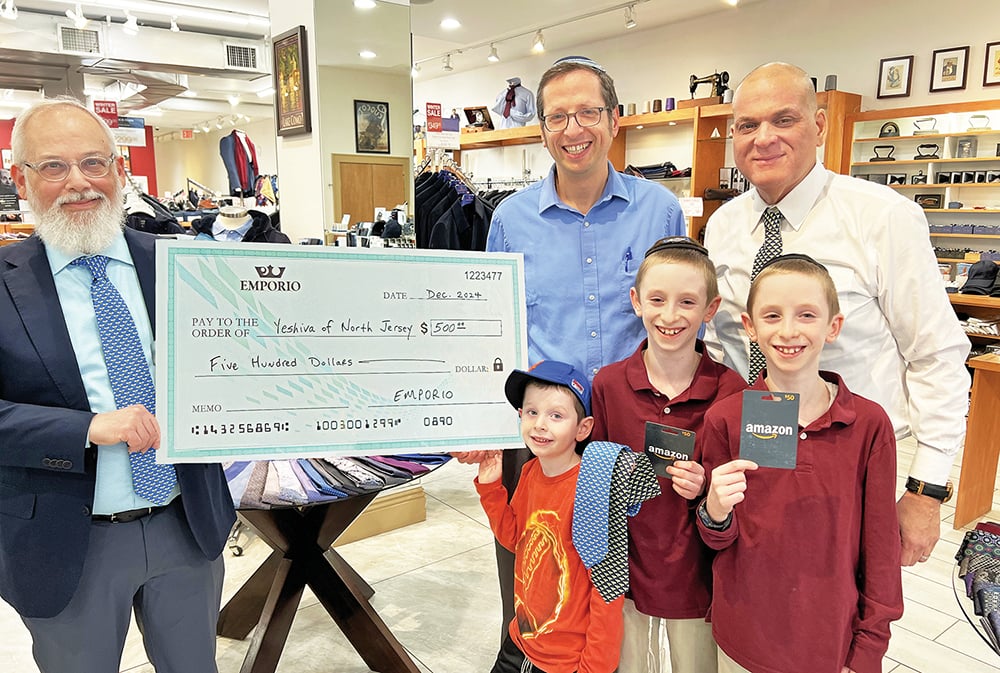 Years ago, when we finished some renovations to our home, we noticed that one of the mirrors in the bathroom was a bit crooked. When telling a friend that this fact wasn’t worth making a big deal over with the contractor, my friend responded that I was making a big mistake. “That mirror is the last thing you look at every night when you end your day, and the first thing you look at when you start your day. If the mirror isn’t straight, how will you feel looking into it?” His logic made sense to me, and we had the mirror fixed. Yet the impact of that advice is still with me more than a decade later, and it’s not the crooked part that stirs my curiosity, it’s the mirror itself.
Years ago, when we finished some renovations to our home, we noticed that one of the mirrors in the bathroom was a bit crooked. When telling a friend that this fact wasn’t worth making a big deal over with the contractor, my friend responded that I was making a big mistake. “That mirror is the last thing you look at every night when you end your day, and the first thing you look at when you start your day. If the mirror isn’t straight, how will you feel looking into it?” His logic made sense to me, and we had the mirror fixed. Yet the impact of that advice is still with me more than a decade later, and it’s not the crooked part that stirs my curiosity, it’s the mirror itself.
Here we go again! The sound of the shofar each morning during the month of Elul is intended to awaken us from our slumber. Another year has gone by, and it is time for each of us to make a calculation about this past year and the state of our existence at this point in our lives. Have we been successful in our plans for spiritual connectivity with Hashem? Are we disappointed that our plans did not work out as we wished? We are urged during this period of reflection to do something with ourselves that is very challenging: looking in the mirror and being brutally honest.
For many of us, looking at ourselves in an honest and objective way is difficult, even frightening. We may go through life in the fantasy of our minds instead of dealing with the reality of who we may really be. To look in a mirror with true honesty can be an incredibly enriching experience, propelling us to grow and achieve the goals we create for ourselves on multiple levels. The success of our relationship with Hashem is an essential component in our lives but is not the only area for self-improvement during the month of Elul.
Commenting on the first pasuk of Parshat Shoftim, the Tiferet Shlomo suggests that each one of us needs to be a shofet, a judge, of ourselves. It is with this judgment that comes some flexibility; some of us are harder on ourselves and hold ourselves to higher standards than others. At times, our judgments or expectations of ourselves can become unhealthy and even debilitating. When judging others, however, we cannot be flexible; we must give them the benefit of the doubt. The need to judge others favorably can be learned from the end of the first pasuk where the Torah calls upon the judges to judge the nation justly.
The Baal Shem Tov, zt”l, explains that we are judged in heaven as we judge people on earth. When it is decided in the heavens to take us to task for a mistake that we made, they inquire as to how we judge others for the mistakes that they make. If we look upon them favorably, then Hashem looks upon us favorably as well.
As part of the process of our own personal assessments during this month, we are encouraged to make amends with those around us. As we do so let’s keep in mind those who are closest to us whom we have not judged favorably enough. Sometimes our closest relationships are the most difficult to manage as they are the most personal and intimate. We cannot fool ourselves to think that our requirement of teshuvah for those whom we have hurt is limited to those outside of our
homes. Judging favorably is a midda that we all must try to observe with those at work, those at shul and, most importantly, those with whom we share a mirror.
Rabbi Eliezer Zwickler is rabbi of Congregation AABJ&D in West Orange, NJ, and is a psychotherapist (LCSW) in private practice. Rabbi Zwickler can be reached at [email protected].













